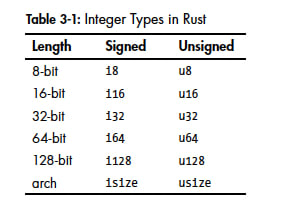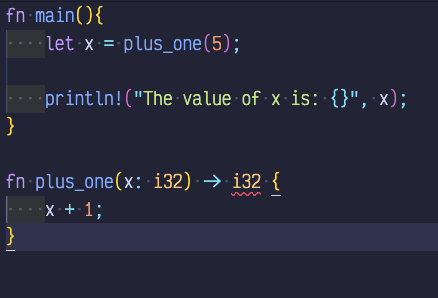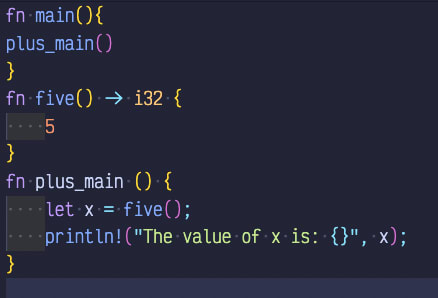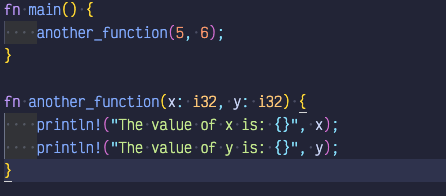This content originally appeared on DEV Community and was authored by Enyel Sequeira
My First week learning Rust using (The Rust Programming Language) "The Book"
Why Rust?
- As a Front-End developer, there is a lot you need to learn and keep up to date. One of the biggest changes coming to web development is web3.0, if you are not living under a rock you have probably heard about it, at least a little. With these changes coming to the web I decided to learn rust to make myself more valuable, this decision also comes after researching the kind of projects you could do. One of them is a compiler, which funny enough my favorite React framework Next uses. I am a big fan of Next and my goal is to understand how rust made a framework that was already fast even faster.
My Plan
- Read The Rust Programming Language
- Try and read at least 1-2 hours each week
- Practice solving coding challenges with rust
My First-week Impressions
- Coming from a JavaScript background, I had quite a few impressions. Most of them were good.
- To begin, the first thing I noticed like most people, is that it is a static language, but what does that mean?. To put it simply, if you have been doing JavaScript for a while most likely you have started working with TypeScript and you noticed that you have to type most of your code. rust is the same way. You can either love this or hate it, for me I loved this, while I was trying some code it made me realize that you can code and deploy a lot faster if the language is typed this also cause fewer mistakes when tracking errors and deploying code.
- My first week of learning rust I noticed how fast it is, I mean really fast. Creating a project was extremely fast taking less than 5s to get a project set up, granted it doesn't install any
dependencieswhich I learned are calledcratesin rust.
Things I have learned this week.
- By default when declaring a variable that becomes immutable, however, it is possible to make it mutable by adding the
mutkeyword like solet mut number - You can also declare a variable using the
constkeyword, gotcha with this is that constants can not be assigned to a return value of a function. - Declaring a function is similar to other languages you declare it using
fnkeyword and the entry point of any application is thefn main(){...code} - The way printing to the terminal works is also different in rust. In JavaScript we can interpolate, but in rust not yet, although it was mentioned that this is a feature that they want to add in the next release.
let mut number: i32 = 50println!("number is {}", number);
- This will print the number
50to the terminal, it reads the variable after the comma. -
Semicolons are really important in rust it can be the difference between a statement and expression and yes they are different
- a Statement is an action that does not return a value
- Expression evaluates something and returns a value
-
Types, in rust there are 2 data types subsets
-
Scalar
- integers
- just like numbers and we can use them signed and unsigned. If it needs a sign before the number, it should be typed using the signed type. This is used for negative numbers.

- just like numbers and we can use them signed and unsigned. If it needs a sign before the number, it should be typed using the signed type. This is used for negative numbers.
- floating-points
- it has two types and the default is f64
- f32 ==32bits==
- f64 ==64bits==
- it has two types and the default is f64
- Booleans
- True/False
- Characters
- integers
-
Compound
- Tupples
- If you have done any TypeScript this works in a similar way
let tup: (i32, f64, u8) = (500, 6,4, 1)- We can destructure like
let (x, y, z) = tup; - and get the values using indexes
- Arrays
- Arrays are a bit tricky at least to my understanding all of the array items must be of the same type. They also have a fixed length and cannot add or remove. Instead, it was mentioned if I need to add or remove to use something like a Vector (still not sure what this is)
- Accessing the element is the same way as it is in JavaScript
- Tupples
Maybe more, but still haven't learned about them.
-
Control flow works the same way as it does in any other language using
ifandelse if-
You have 3 ways to loop (that I have read),
- loop
- while
- for
Functions can have an explicit return and with this, it does not matter where the function is declared, you can declare it at the end of the file and call it, in the beginning, this will still work. Being that is a static typed language you need to type the parameters of a function.
- Explicit return of the function
five
- In rust like mentioned above it is important the use of semicolons

- this would not work because if we add a semicolon at the end of
x+1;fn plus_onefunction this makes it into a statement and if you remember a statement does not have a return value.
- this would not work because if we add a semicolon at the end of
Conclusion
While I have learned a bit more than just these topics, I believe these are the key concepts of what I have learned this week. I will continue to write what I have learned from the book each week and share it, if you want to follow you can follow my socials.
I am a beginner in the rust language so please keep in mind that the information given here is just my understanding and might not be the correct way. If you do see a typo or misinformation please do leave a comment. 😃
PS: If you are interested in doing a Bootcamp, I have partnered with Practicum By Yandex to offer a discount. This is one of the boot camps I did, and I really enjoyed the process. It offers a 30% discount which is pretty sweet considering most boot camps are expensive.
This content originally appeared on DEV Community and was authored by Enyel Sequeira
Enyel Sequeira | Sciencx (2021-11-22T14:31:25+00:00) First Week learning rust. Retrieved from https://www.scien.cx/2021/11/22/first-week-learning-rust/
Please log in to upload a file.
There are no updates yet.
Click the Upload button above to add an update.


